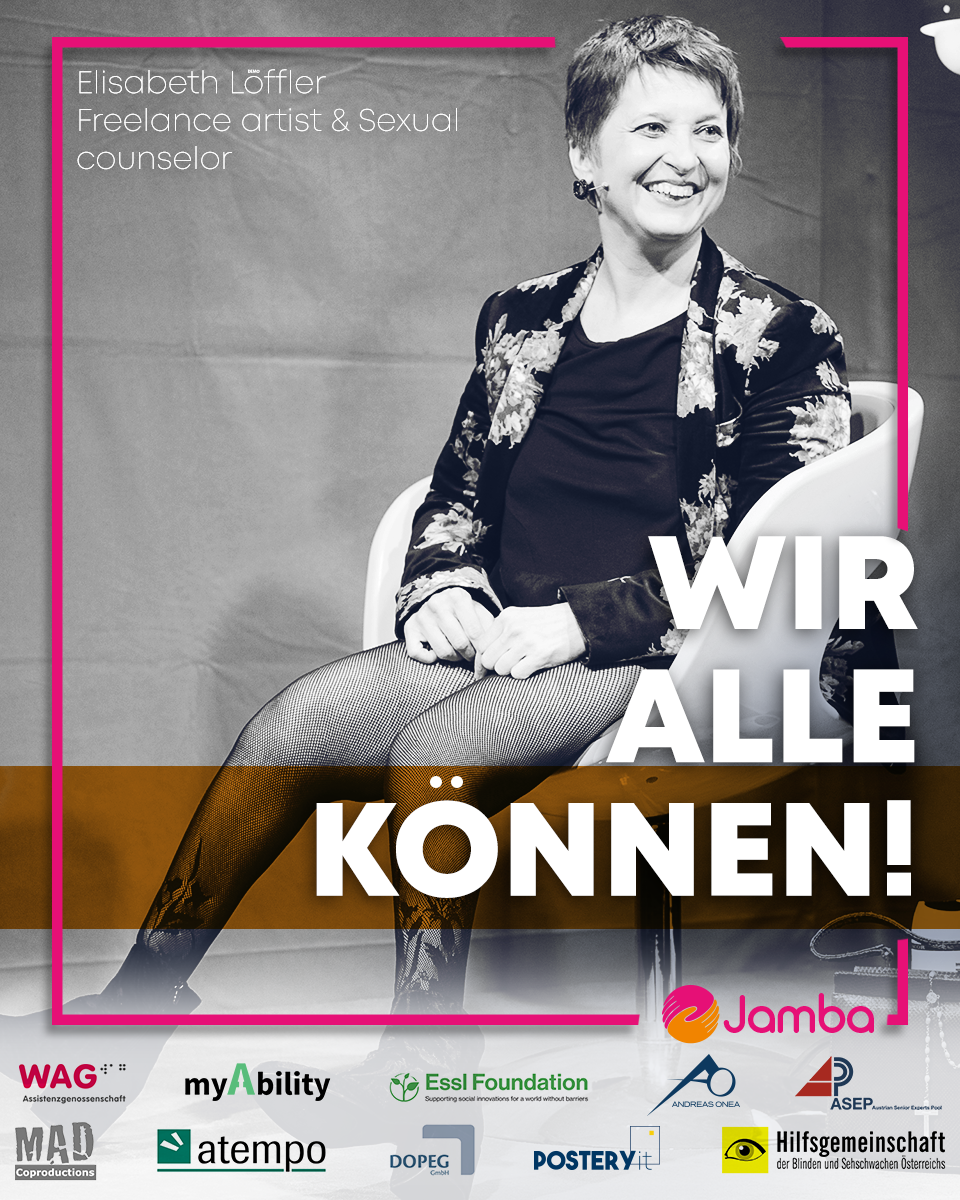Wir Alle Können (We All Can) reflects the many success stories of people with disabilities who overcame barriers to succeed in their professional careers. Elisabeth Löffler is one of them!
 |
Elisabeth Löffler had a dream since her childhood – to become an actress. She wanted to play Juliet from Shakespeare’s drama Romeo and Juliet, but she was told that this was impossible because she was a person with a disability. Well, Juliet is just standing on the balcony, so I can do that too, she thought. After this situation, she came across a number of prejudices and convictions that an acting career would only be possible for people without disabilities, since Elisabeth could neither ride horses nor dance ballet.
In order to hide my body, I was advised to go to the radio because those I turn to there cannot see me.
Instead of going to the radio, she attended a dance workshop in Cologne with Alito Allessi when she was 25 and there she discovered that she wanted to do nothing else but dance. That was the moment that changed everything, Elisabeth had the feeling for the first time that her body was okay as it is, that she, the body was good enough – also to dance, to move, to get in contact with other bodies, she felt valued, equal – at eye level. She was surrounded by people for whom dancing was important, specifically Contactimprovisation or CI. In 1996 a group of artists founded in Vienna under Daniel Aschwanden – Bilderwerfer, the first professional dance and theater group in Vienna. In Austria there is no publicly recognized training for people with disabilities who want to become artists, Elisabeth continued, so she organized additional training in various ways. Together with her colleague, she founded the LizArt Production association and, together with Vera Rosner and Cornelia Scheuer, in 2013 the MAD – Verein zur Förderung von Mixed-Abled Dance & Performance, where, extended by Steffi Strubreiter and the MAD team, they are fighting to initiate, support and accompany sustainable socio-political changes in the arts. An association that developed in an artistic and cultural context and wants to initiate, influence and establish a paradigm shift in this context.
MAD has 5 basic principles, in addition to the principle of professionalism, co-production, mixed-abled and participatory-barrier-free principle is also important to emphasize that it is, and this is the fifth principle, about art and not about therapy
In addition to her work as a freelance artist, Elisabeth is also active as a sexual counselor and is involved in the Self-Determined Life Movement. She points out the wonderful experience of working with children, which she sees as an artist and not as a person with a handicapped body, but she believes that much more needs to be done in Austria for the in regards to politics concerning people with disabilities.
Now I can say with certainty that after some time and a lot of experience I am very proud that I never gave up my dream – although the system sometimes did not support me in my efforts. I do what I love, as an artist, consultant, mother – I dance and write. Therefore I recommend to the younger generations: Listen to your inner voice and follow it and seek allies. |
